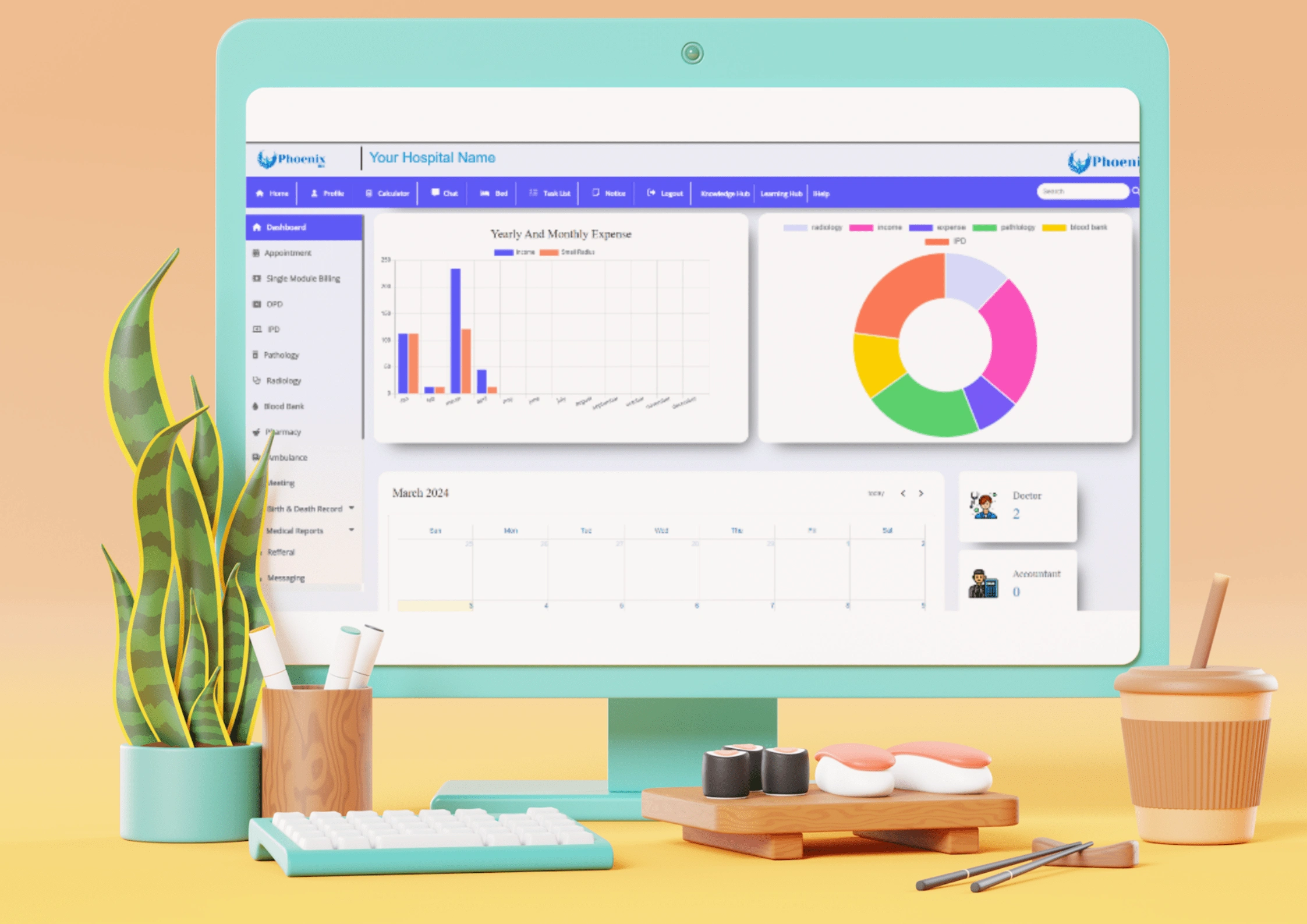Hospital Management System
Overview: The Hospital Management System (HMS) is a comprehensive web application designed to streamline the management of hospital operations. It provides a centralized platform for managing patient data, appointments, accounting, billing, and other administrative tasks. Built using Django, Python's high-level web framework, and incorporating Django REST Framework for API development, the system ensures efficiency, security, and scalability.

Key Features:
User Authentication and Authorization: The system offers various types of user logins with role-based access control, including administrators, doctors, nurses, receptionists, and patients. Each user type has access to specific functionalities and data based on their roles and permissions.
Dashboard: The intuitive dashboard provides a comprehensive overview of hospital operations, including real-time statistics on patient admissions, appointments, pending tasks, revenue, and more. Users can customize their dashboard view to prioritize relevant information.
Patient Management: The system facilitates efficient patient management, allowing staff to register new patients, update their profiles, schedule appointments, record medical histories, and manage treatment plans. It also supports the generation of digital patient records for easy access and retrieval.
Appointment Scheduling: Through the application, patients can request appointments with doctors based on availability and specialization. Staff can efficiently manage and schedule appointments, send reminders to patients, and maintain an organized calendar to avoid conflicts.
Billing and Accounting: The HMS automates the billing process, generating invoices for services rendered, medications prescribed, laboratory tests conducted, and other expenses incurred. It tracks payments, manages insurance claims, and provides financial reports for analysis.
Inventory Management: The system includes modules for managing hospital inventory, such as medical supplies, equipment, and pharmaceuticals. It tracks stock levels, notifies staff of low inventory, and generates purchase orders to replenish supplies as needed.
Reporting and Analytics: Users can generate customizable reports and analytics to monitor key performance indicators, track trends, and identify areas for improvement. These insights help in optimizing hospital operations, enhancing patient care, and maximizing revenue.
Technology Stack:
Backend: Django (Python)
API Development: Django REST Framework
Database: MySQL
Frontend: HTML, CSS, JavaScript
Other Tools: Git for version control, Docker for containerization
Conclusion: The Hospital Management System is a robust solution designed to streamline administrative tasks, improve patient care, and optimize overall hospital operations. Its user-friendly interface, advanced features, and secure architecture make it an invaluable asset for healthcare institutions seeking to enhance efficiency and deliver high-quality services.
Like this project
Posted Mar 3, 2024
Hospital Management System: Django-based platform for streamlined operations. Patient management, billing, analytics. Enhances healthcare efficiency.







